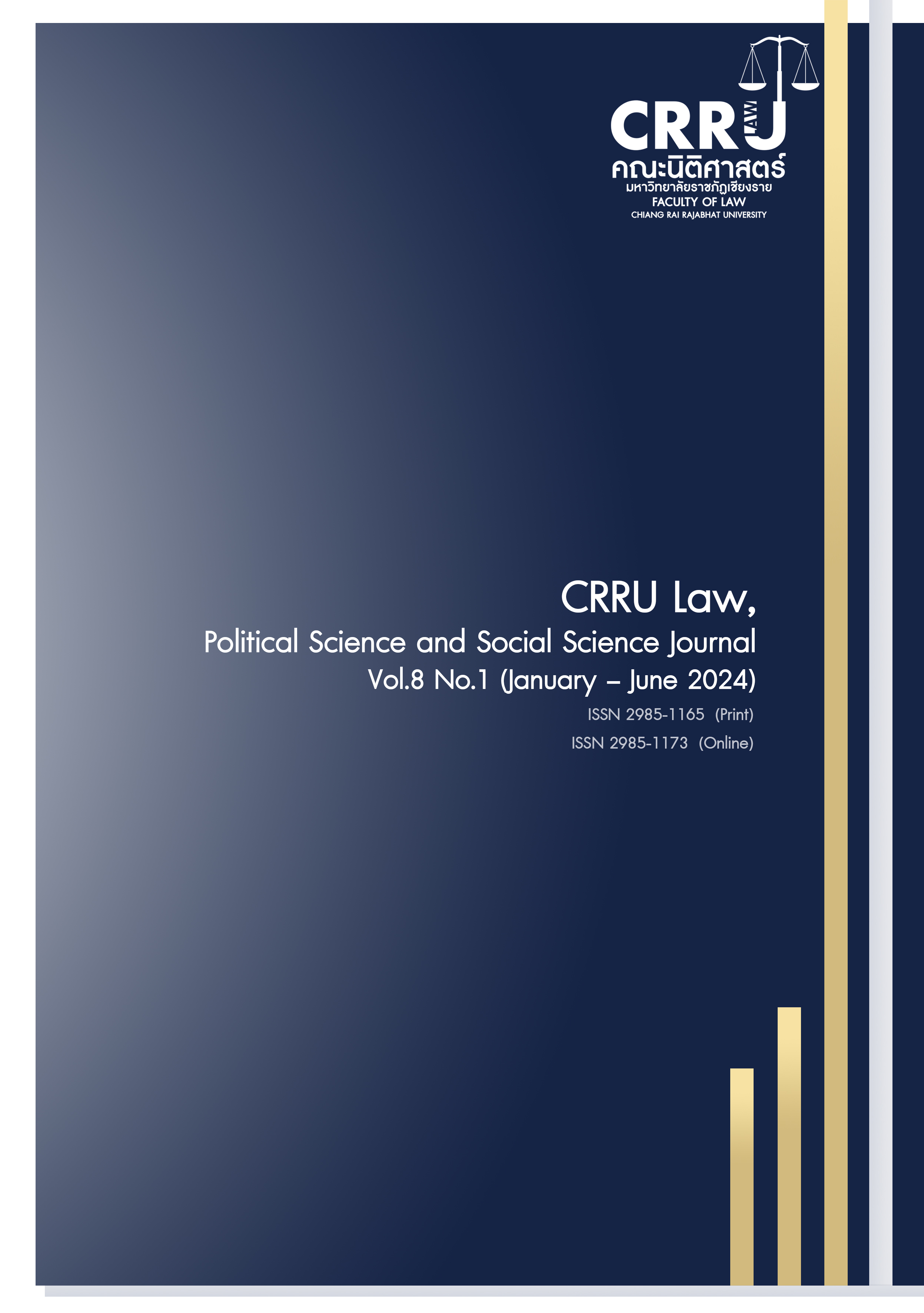การแข่งขันทางการค้าที่เป็นธรรม: ปัญหาของกฎหมายแข่งขันทางการค้าไทยจากการยกเว้นรัฐวิสาหกิจ
Main Article Content
บทคัดย่อ
งานวิจัยนี้เป็นการวิจัยเชิงคุณภาพ มีวัตถุประสงค์เพื่อศึกษากฎหมายและปัญหาว่าด้วยเรื่องรัฐวิสาหกิจภายใต้กฎหมายแข่งขันทางการค้าของไทยและของต่างประเทศ ศึกษาและวิเคราะห์ข้อดีและข้อด้อยของการนำรัฐวิสาหกิจเข้ามาอยู่ภายใต้กฎหมายแข่งขันทางการค้าของไทย และเสนอแนวทางออกประกาศหลักเกณฑ์การพิจารณาการยกเว้นรัฐวิสาหกิจเป็นรายกรณีโดยมีการพิจารณาพฤติกรรมการแข่งขันที่ไม่เป็นธรรม (anti-competitive behavior)
จากการศึกษาพบว่าปัญหาของการยกเว้นรัฐวิสาหกิจของไทยจากกฎหมายแข่งขันทางการค้าเป็นการยกเว้นแบบ “เหมาเข่ง” ซึ่งทำให้รัฐวิสาหกิจของไทยไม่อยู่ภายใต้กฎหมายแข่งขันทางการค้าเลย อันเป็นผลให้มีผลกระทบเชิงลบต่อการแข่งขันทางการค้าของไทยหลายประการ งานวิจัยนี้จึงได้ถอดบทเรียนจากกฎหมายแข่งขันทางการค้าของสหภาพยุโรปและประเทศสหรัฐอเมริกาที่ไม่ได้ยกเว้นรัฐวิสาหกิจแบบเหมาเข่ง หากแต่เป็นการยกเว้นเป็นรายกรณีโดยมีเกณฑ์การพิจารณาที่ชัดเจนเพื่อวัตถุประสงค์ในการรักษาไว้ซึ่งการแข่งขันที่มีประสิทธิภาพและเป็นธรรม
งานวิจัยได้เสนอแนวทางออกประกาศหลักเกณฑ์การพิจารณาการยกเว้นรัฐวิสาหกิจเป็นรายกรณีโดยมีการพิจารณาพฤติกรรมการแข่งขันที่ไม่เป็นธรรม (anti-competitive behavior) โดยอาศัยอำนาจตามมาตรา 17(2) ตามพระราชบัญญัติการแข่งขันทางการค้า พ.ศ.2560
Article Details
เอกสารอ้างอิง
Becker, G. S. Crime and punishment: An economic approach in the Economic Dimensions of Crime. London: Palgrave Macmillan, 1968.
Borenstein, S., and Bushnell, J. B. “The US electricity industry after 20 years of restructuring.” Annual Review of Economics, 7 (2015).
Buccirossi P. and Lorenzo C., Competition Policy and the Balance of Enterprises, Loannis Lianos and Damien Geradin ed., Handbook on European Competition Law: Enforcement and Procedure. UK: Edward Elgar Publishing, 2013.
Geradin, D. The Opening of State Monopolies to Competition: Main Issues of the Liberalization Process, Regulation and Competition Policy in the European Union: Current Issues and Future Challenges. UK. Oxford University Press, 2000.
Hovenkamp, H. Antitrust, Federalism, and the Regulatory State, Hovenkamp, H., Antitrust Policy and Vertical Restraints. UK. Routledge, 2018.
Kovacic, W. E., & Shapiro, C. “Antitrust policy: A century of economic and legal thinking.” The Journal of Economic Perspectives, 14(1) 2000.
Monti, G. “Article 86 (now 106 TFEU) and Public Undertakings.” Common Market Law Review, 39(6) 2002.
OECD. “Competition and Financial Markets.” OECD Publishing, 2009.
Phongpaichit, P. and Baker, C. “Thaksin's populism.” Journal of Contemporary Asia, 38(1) 2008.
Posner, R. Antitrust law. University of Chicago Press, 2001.
Sidak, J. “The United States Postal Service as a cause of and a solution to some antitrust problems.” Criterion Economics Working Paper, 2015.
Suehiro, A. and Wailerdsak, N. “Family business and business groups in Thailand,” Business Groups in East Asia: Financial Crisis, Restructuring, and New Growth. Oxford University Press, 2011.
Svetiev, Y., & Buccirossi, P. “The Challenges of Competition Law Enforcement in Regulated Industries: Issues in the Application of the Thai Competition Act to State-Owned Enterprises.” World Competition, 40(4) 2017.
Whish, R. and Bailey, D. Competition Law. Oxford University Press, 2018.
Zhang, X. “The enforcement of the Anti-Monopoly Law in China: An institutional design perspective.” Northwestern Journal of International Law & Business, 30(1) 2010.


